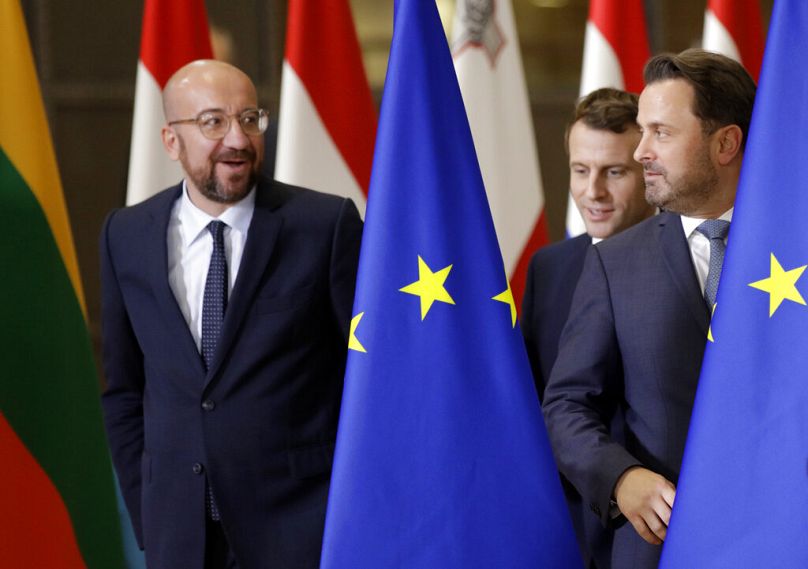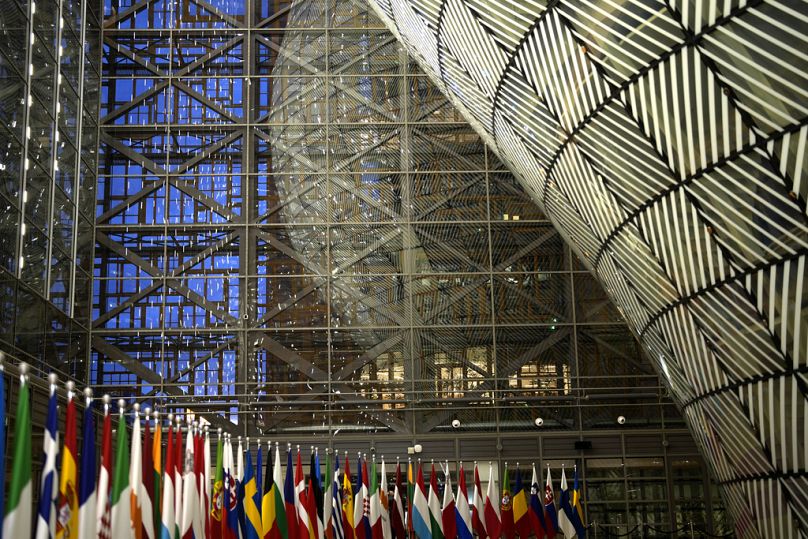The money the EU invests in global challenges abroad is the tangible manifestation of our European values in action, reflecting the international commitments the union has made, Pascal Lamy, Andris Piebalgs, Heidemarie Wieczorek-Zeul, Neven Mimica and Charles Goerens write.
In too many places, in too many parts of the world, the prospect of the next generation having a better future than their parents did is being squeezed.
 ADVERTISEMENT
ADVERTISEMENT
 ADVERTISEMENT
ADVERTISEMENT
Whether it’s rising poverty or hunger levels, mounting debt burdens or increasingly frequent climate shocks, the need for collective action and scaled investment to urgently address these challenges has rarely been more acute.
These are not just somewhere else’s problems. It is in all our interests that the world pulls together in the face of the climate crisis and emerging health threats; these are global challenges that no country or bloc can tackle alone.
It is therefore cause for profound concern that the tentative deal on the revision of the EU’s long-term budget, backed by 26 member states, will cut at least €2 billion from vital development and climate investments in partner countries in order to fund migration programmes.
Member states want to rip up the rulebook
The latest proposal for the revised budget, agreed in December, suggests that €2bn “decommitted” or unspent funds from the EU’s development budget should be used to provide additional funding for migration programmes.
On the surface this might sound logical however in 2020 the EU, including member states, agreed on a series of minimum investments they would make in regions such as sub-Saharan Africa, and enshrined these amounts in EU law.
In a bid to protect funding for long-term priorities from short-term needs, the law also stipulates that any unused funds should be retained for and reinvested in their original purpose. Now member states want to rip up the rulebook.
Diverting unused funds means cuts to existing programmes. In addition to the legal constraints, at this point in the long-term budget cycle it is not possible to accurately project how much money will be unspent at the end of the budget period, which budget lines these funds would come from, or when they would be available.
Therefore, the only way to quickly mobilise the €2bn requested by member states is to cut the development budget.
Not only will it mean less money will be invested in health systems in Africa, for example, in order to pay for migration, it would also create a dangerous new precedent through which funding agreed for the EU’s long-term strategic investments can be siphoned away to meet member states’ short-term goals.
This approach puts the EU’s relationships with partner countries and its credibility as a global actor in jeopardy.
Money invested in global challenges represents our values in action
In a multipolar and increasingly competitive world, the EU must retain strong alliances.
The EU’s development budget is a concrete demonstration to our partners in low and middle-income countries that we stand united in the face of global challenges.
However, the EU’s words are increasingly out of sync with the bloc’s actions. On the one hand, the EU lauds its desire for a renewed partnership with Africa, or its leadership on global health, but at the same time, it cuts the funding to deliver these priorities.
The money the EU invests in global challenges abroad is the tangible manifestation of our European values in action, reflecting the international commitments the EU has made.
It stands as a testament to our collective aspirations for a more equitable world — one where the most vulnerable populations, particularly women and girls, are supported through crises jeopardising their lives, health, and livelihoods.
If EU leaders want to retain global relevance, they must rethink their approach and ensure the bloc's budget is capable of fulfilling the EU's ambitious, geopolitical agenda.
The deal that’s on the table signals danger at every corner, instead of increasing resources in the face of existing and emerging crises the EU seems more likely to turn its back to look inwards, at the time the world needs it most.
Pascal Lamy is former European Commissioner for Trade, former Director-General of the World Trade Organization (WTO); Andris Piebalgs is former European Commissioner for Development; Heidemarie Wieczorek-Zeul is former German Federal Minister of Economic Cooperation and Development; Neven Mimica is former European Commissioner for International Partnerships; and Charles Goerens is former Luxembourgish Minister for Cooperation, Humanitarian Action, and Defence, and a current Member of the European Parliament representing Parti démocratique (Renew Europe). Piebalgs, Wieczorek-Zeul, Mimica and Goerens are also members of Friends of the Global Fund Europe Board.
At Euronews, we believe all views matter. Contact us at view@euronews.com to send pitches or submissions and be part of the conversation.












